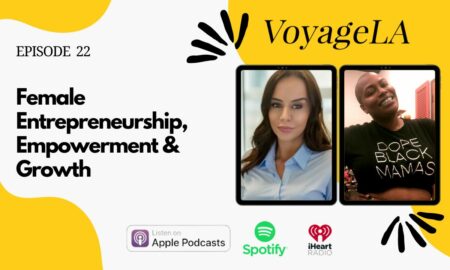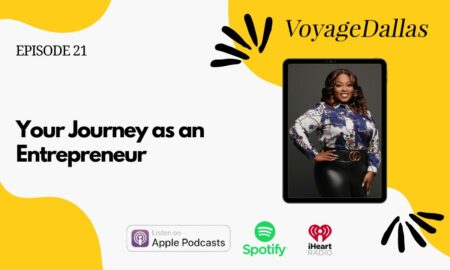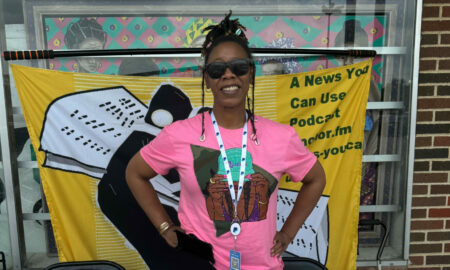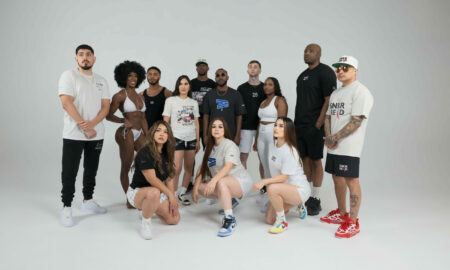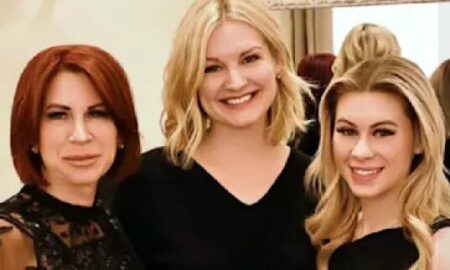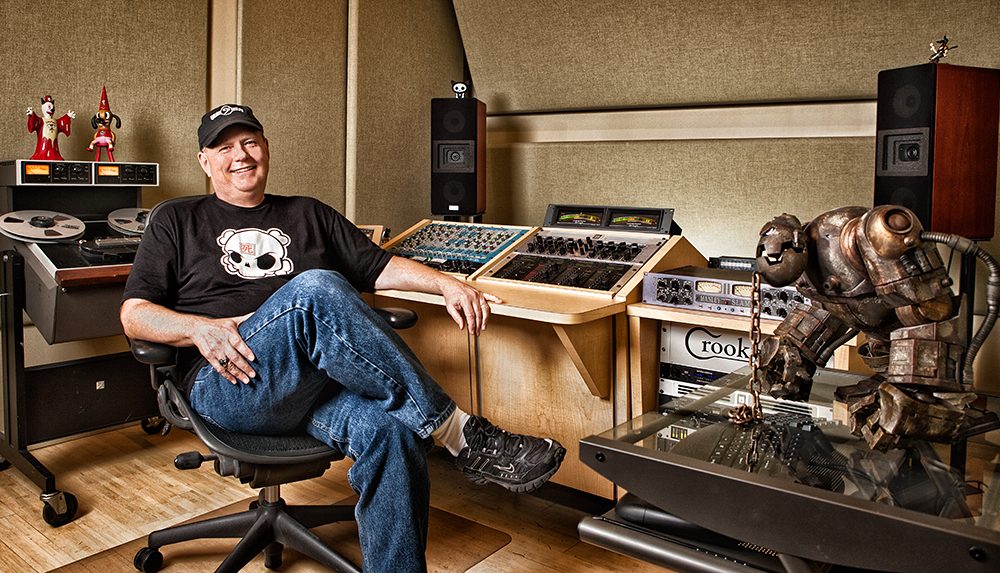

Today we’d like to introduce you to George Geurin.
So, before we jump into specific questions about the business, why don’t you give us some details about you and your story.
I moved to Dallas right out of high school in 1971 specifically to be in the music scene here as a rock and roll bass player. I got a degree in electronics engineering and by 1974 I was working at a tape recorder specialty shop called Recorder Center. I worked there for almost 10 years, managing it starting in 1976, and really everything I know about recording I learned there. Aside from selling, installing and servicing professional recording equipment we also sold ultra high-end home audio gear.
So by listening to and demonstrating that level of gear every day, my ears were being trained for what I would eventually make a career of, though of course, I had no notion of that. Recorder Center also did live remote recordings, including a digital recording of the Dallas Symphony Orchestra at the Cotton Bowl in 1979 which was arguably the first live digital recording in the Southwest. The powers-that-be at Sony valued the insight and opinions of Recorder Center owner Mark Muntzel, and any time Sony executives would come stateside they usually made the trip to Dallas to visit with Mark.
Consequently, we were given access to a lot of top-end Sony audio gear to use and evaluate often months before it was released, including the first digital audio converters such as the PCM-10 and PCM-F1. By late 1976 I was also working as a free-lance engineer in local studios. Many of the studios had gear I had sold, installed and trained them on, so I had established a level of trust there that allowed them to give me access to their studios after-hours for my own sessions or their overflow. I was able to use the Sony prototypes from Recorder Center so I was mixing to digital formats by 1979. I left Recorder Center around 1984 for a brief stint as a studio owner and continued to work at local pro audio dealers selling and installing studio gear while continuing my free-lance engineering through 1990.
By 1988 I was seeing demonstrations of the very first digital audio workstations at the AES shows in New York and L.A., and even though those were only mono sample editors that could handle maybe 3 seconds of audio, those of us attending saw the handwriting on the wall – that this would be the future of audio editing and mastering. So in 1990 I started Digital Editing Services with DigiDesign’s Sound Designer II software on an Atari XL computer (!!) just to test the waters, and within a few months business was so good I burned out the Atari and moved to a Mac, registered my business name, and was off and running.
At that time digital photography or video was not at all commonplace so people recognized Digital Editing Services as an audio service. But by 1994 the majority who saw the name assumed digital image editing so I changed the street-name to D.E.S. Mastering.
Has it been a smooth road?
If I’m going to be totally honest about it, no it has not been much of a struggle. All I had to do was not resist and my whole path has been laid out in front of me. I prefer to think God has done this, probably for some future purpose not yet revealed, but others may need to think of it all as coincidence.
But it is a mighty long string of coincidences if that’s the case. One thing in my favor was I was paying attention when a major shift in technology occurred, I was in the right place at the right time to see its unveilings, and I was able to move immediately and be among the first, if not the first in the Dallas area to offer digital audio editing and mastering.
Another big advantage was that I had a built-in clientele from all of the artists, producers and studios that I had engineered for over the previous 14 years, so literally, all I had to do was make a few phone calls and I had sessions booked. All of the real dues I paid was before I started DES. People who have never worked in production could never appreciate how many hours you have to give away when you are trying to get started. Sometimes you’ll work on a project solid for two weeks and more and then may be able to bill for 50% of the time you actually spend.
And even the rate you can bill it has to be low because until you get a few successful projects under your belt you’re an unknown entity and nobody’s going to pay you what they could get a known engineer for, obviously. So that was the hardest part of my whole journey, supporting myself otherwise during the day while working long hours at night honing my recording skills and building a name.
We’d love to hear more about your business.
I am a mastering engineer or M.E. in studio lingo. D.E.S. is a mastering room, also called a mastering lab or just mastering studio. Mastering is the final step in music production. The mastering engineer is responsible for getting all of the quality out of the recording that is there, for making sure that the emotional point of each song is getting through and nothing is getting in the way. In album projects, he also ensures that there is a consistency in the sound when you listen start-to-finish, that volume and tonal balance of the songs stays consistent.
So no song suddenly jumps out louder or has a lot more bass than the other songs etc. He also assembles the songs in proper order and sets the spacing or crossfading between songs. Mastering is also the transition from pro audio to consumer audio, taking what hopefully sounds good over $10,000 monitors in studio control rooms, and also making it sound great on consumer audio gear, computer speakers and earbuds. The final and very critical stage of mastering is cutting the highest quality masters (called “parts” in the industry) that then go for digital downloads/streaming, vinyl record manufacturing, CD replication or whatever media the client is releasing.
DES Mastering is a purpose-built audio mastering facility. That means it was built as a mastering lab and does nothing but mastering. Every piece of gear relates specifically to mastering. No tracking, no mixing, just mastering. This is important as each of those three stages of production requires a different skill set and a different way of listening. If you look at how most of the best productions have been done, a tracking engineer handled all of the recordings, a mixing engineer did the mixing, often at a different studio, and yet a third engineer did the mastering in a mastering room.
The advantage of doing this is each phase of the process is being done by an engineer who specializes in his craft and is lending a fresh set of ears so no one engineer is getting too close to the project by hearing it too much over and over again. Also by moving each process to a different studio, it is being heard in different rooms over different speakers, so any sonic problem in one room isn’t being multiplied. Most independent projects these days can’t afford separate tracking and mixing engineers or studios, so that is most often done by one engineer at the grass-roots level, but by using a professional mastering room like DES Mastering, they can take full advantage of having a professional, experienced set of ears add the final polish to the sound, and ensure they a getting the highest quality masters possible.
DES features the finest gear in both digital and analog technologies. It is surprising to many that throughout the digital audio age, high-end mastering has been done almost exclusively with analog gear. Digital gear is used for more surgical repairing of tracks, and for the final processing used to establish volume, and of course, all of the editing and assembly (called “production” in mastering) is done in the digital domain on the computer. But analog gear is used in the ‘sweetening’ stage, where the quality of the sound is enhanced. Even to the point of mastering to analog tape to get the richness that only tape can achieve.
Over the past 27+ years, DES has mastered over 4000 albums for artists ranging from local acts to Grammy winners. Highlights would include Manny Fresh, DJ Screw, Tripping Daisy, Silk, Flickerstick, Bugs Henderson, Amanda Sena, 8-Ball & MJG, Little Joe y la Familia, The Polyphonic Spree, Mr. Nitro, Radiant, The Rounders, Oil Boom, Erykah Badu, Maren Morris, Randy McAllister, The Nadas and many many more.
Is our city a good place to do what you do?
As I started I moved to Dallas specifically because of the strong music scene here. I still play bass in local bands and have always been amazed at the incredible array of talent here. I had an opportunity in the mid 90’s to move to L.A. and become part of a large facility there. But I made the hard decision to stay in Dallas and serve the community that has served me so well by offering a professional service at rates still affordable to our grass-roots artists.
Unfortunately for the last few years, it has been a downward trend of the public preferring cover bands and tribute bands to original music. But that is cyclical and it will come back around. Dallas has always been a hotbed of recording and production and I’m sure that will continue. Regardless, with online-delivery now being the norm I master for artists all over the world, including blues bands in Japan and rap artists in Germany.
It’s funny to reflect that when I started in recording during the analog days I would leave the studio with multiple 2”, 1”, 1/2” and/or 1/4” analog tapes often weighing in at 100 pounds or more, then to VHS and Beta video cassettes that the original Sony digital recorders used, then to DAT tapes that would fit in your shirt pocket, then to CD-R’s and DVD-R’s where you could carry the masters for 10 projects in a briefcase, and now to the internet age where most often there are no physical masters at all – the clients upload mixes to me, I upload references to them, they approve and I upload masters to digital distributors and CD plants. So it’s gone from carting around 100’s of back-breaking pounds to nothing. It’s all up there in the cloud somewhere.
Contact Info:
- Address: 1409 S. Lamar St. Suite 100 Dallas, TX 75215
- Website: www.desmastering.com
- Phone: 214-428-8777
- Email: george@desmastering.com
- Facebook: https://www.facebook.com/DES-Mastering-168648881470/
- Twitter: https://twitter.com/DES_Mastering







Getting in touch: VoyageDallas is built on recommendations from the community; it’s how we uncover hidden gems, so if you know someone who deserves recognition please let us know here.












